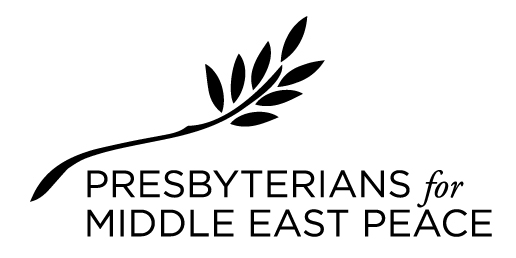Presbyterians for Middle East Peace (PFMEP) announces the publication of Two States for Two Peoples, a new resource for Christians and others concerned with peace in the Holy Land. The publication comes as many view the Palestinian-Israeli peace process as stalled, and as activists from the global Boycott, Divest and Sanctions (BDS) movement are working toward persuading the Presbyterian Church, U.S.A. to drop its support for the two-state solution when the denomination holds its biennial meeting in Portland, Oregon, in June.
“Two States for Two Peoples offers a strong defense of the two-state solution as the best way forward, and outlines a peace initiative built on three essential principles: coexistence, cooperation and empowerment,” says Rev. William Harter, Presbyterian pastor and co-moderator of PFMEP. “These principles are based on Christian values, Christian ethics and Christian faith in God and humanity.”
First, PFMEP believes that the Palestinian-Israeli coexistence movement must be encouraged and supported. “The coexistence movement brings Israelis and Palestinians together at a grassroots, person-to-person level and is made up of over 80 organizations comprising the Alliance for Middle East Peace,” says Rev. Harter. “These organizations move the peace process forward and deserve direct support from Christians.”
Second, economic cooperation between Palestinians and Israelis is essential. “Almost 100,000 Palestinians enter Israel each day for work and thousands more Israelis and Palestinians work side-by-side to provide a future for themselves and their families. People with no hope are susceptible to the call of violence. Providing hope for the future is the best way to advance peace and understanding,” says Rev. John Wimberly, a founder and co-moderator of PFMEP.
Third, people of good will on both sides of the conflict must be empowered with a voice in their future and a seat at the political table. This requires an open political process in which all voices are heard and no one is coerced or threatened for speaking his or her mind. “Israelis live in a liberal democracy with freedom of expression and the ability to freely choose their leaders,” says Rev. Jill Schaeffer, a Presbyterian pastor. “Palestinians face a much more difficult situation with a militant dictatorship in the Gaza Strip and an unelected government in the West Bank. This must change, with all Palestinians given a chance to be heard and a voice in their future.”
It is through this three-part plan that a two-state solution — two states for two peoples — can transition from dream to reality. “We caution Christians to be wary of those opposed to these principles,” says Rev. Harter. “Some anti-Zionist groups promote a so-called ‘one-state solution’ calling for the nation of Israel to dissolve itself and a ‘new nation’ to be formed. This is not a genuine plan for peace but a thinly disguised attack on the right of Israel to exist as a Jewish state. It is part of an international campaign to deny the right of the Jewish people to self-determination and a homeland. It has no more moral standing than denial of the Palestinian people’s right to freedom, self-determination and a homeland, and should be rejected by all in the Christian community.”
Two States for Two Peoples is available for free download on the PFMEP website, www.pfmep.org. The hard-copy resource will be available soon on Amazon.com. For inquiries on orders for multiple copies, contact Gary Green at [email protected].
###





